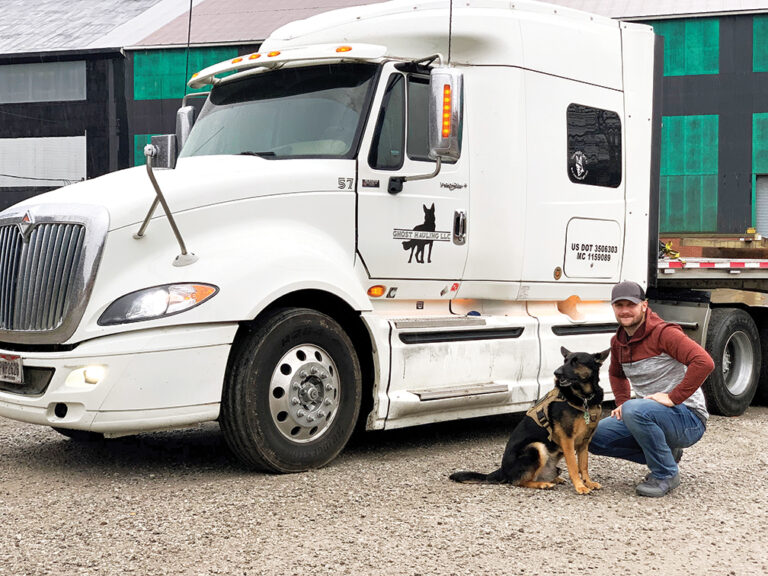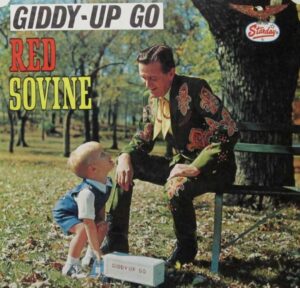Zachariah Fry walks into a truck stop and scans the room. He’s been out on the road driving semis for 12 years, and he’s become pretty good at spotting trouble in front of him before it starts. Today is no different as he casually looks from face to face, wondering who will be the one to speak up first about his companion.
The duo has been yelled at and accosted, and Fry’s been told to “get the hell outta here” plenty of times. The relationship has caused him to change jobs, as he refuses to work for a company that would discriminate against the pair. He says he knows ignorance when he hears it, but that doesn’t mean he’s not tired of having to stick up for himself and his pal — his service dog, Ghost — who never says a word, just sticks to his side.
 “There’s so many misconceptions about service dogs and it’s absolutely ignorance,” said Fry, 31. “But, that’s just our society, right? Everybody thinks they know everything, but nobody actually cares to learn anything. Basically, with the dogs out on the road, people either love them or they hate them.
“There’s so many misconceptions about service dogs and it’s absolutely ignorance,” said Fry, 31. “But, that’s just our society, right? Everybody thinks they know everything, but nobody actually cares to learn anything. Basically, with the dogs out on the road, people either love them or they hate them.
“It isn’t just Ghost; a lot of truckers deal with this with their dogs,” he explained. “I would say at least 75% of trucking companies don’t allow drivers to have pets. But ‘service’ is the key word. If you have a service dog, they’re not a pet.”
Fry said having PTSD makes a service animal a necessary element of his dealing with the stress of everyday life — stress than can be made worse with his job.
“When I was younger, they tried treating it with meds and stuff, but it didn’t go well,” he said. “The doctor suggested the service dog route, and that’s how I came to get Ghost. I didn’t expect him to be what he is to me. Basically, our life has become one together.”
The ultimate irony of the relationship is that the very thing, his dog Ghost, that helps Fry cope with the stress and potential triggers of the road is the same thing that’s caused him the most headaches from others in his trucking career, from employers to truck-stop personnel to storekeepers while out on the road.
“It’s been stressful over the years,” Fry said. “I remember one time we were in Kroger, and we were in an aisle. Ghost, when he’s working, he doesn’t bark at anybody. He’s an exceptionally (well) trained dog. We were in an aisle, and I was bent over picking up some shaving cream and the manager comes up behind us aggressively, ‘You can’t have that dog in here!’
“I was like, ‘He’s a service dog.’ ‘If he’s a service dog, I need to see some papers right now!’ the guy said,” Fry recalled. “I was like, ‘That’s not how it works. I don’t need to show you anything, actually.’ He’s like, ‘Then you get the hell out of my store!’ And that same thing has happened a million times.”
The Americans with Disabilities Act was supposed to smooth things for people who rely on service animals to function, but Fry said in reality, the law is widely misunderstood — or just disregarded altogether.
 “With the ADA, basically if you have a service dog you don’t have to have a vest on it that says ‘Service Dog’” Fry said. “The requirements are that your dog is trained and he’s not bothering anybody. He can’t be creating a disturbance, and if he is, people can ask you to leave. If you go to a business, they’re allowed to ask you, ‘Is he a service dog?’ Then you can answer them, and they can ask you, ‘What is he trained to do so that we may accommodate?’”
“With the ADA, basically if you have a service dog you don’t have to have a vest on it that says ‘Service Dog’” Fry said. “The requirements are that your dog is trained and he’s not bothering anybody. He can’t be creating a disturbance, and if he is, people can ask you to leave. If you go to a business, they’re allowed to ask you, ‘Is he a service dog?’ Then you can answer them, and they can ask you, ‘What is he trained to do so that we may accommodate?’”
When asked why he sometimes chooses not to suit Ghost with a vest, on the off-chance that it might head off some of the confrontations, Fry said it comes down to a matter of privacy.
“I do have a medical condition, and I’ll tell you what. The worst part of having a service dog is that everybody asks what you’re suffering from that qualifies you to have a service dog,” he said. “I shouldn’t be required to have a big sign that says, ‘I’ve got something wrong with me. Here’s my service dog.’
“People who have service animals, they don’t want confrontation,” he shared. “They don’t have a service animal because they want to go fight everybody about their dang dog. You know what I mean? That’s what always blew my mind so much about it. I have him with me to help keep me calm and for my benefit. He’s the sweetest dog ever, and everywhere we would go it would just cause a big scene, like he’s some troublemaker. It’s just crazy.”
Fry said the presence of Ghost has caused him to cycle through several trucking companies who refused to view the 6-year-old German shepherd as anything but a pet. So earlier in mid-2020, he took the extraordinary step of forming his own company, Ghost Hauling.
“We’ve been doing real good. I have a handful of customers, great people. It’s the best experience of my life,” Fry said. “I work on the smaller side of things, you know, working with smaller companies and smaller shippers. I haul fertilizer most of the time. I deliver to farmers and nurseries and stuff like that.”
One interesting aspect of the venture is that now that Ghost is pulling double duty as company mascot — with his profile painted on the side of the truck and everything — the reception the pair receives is often much different than when Ghost was simply doing his job as a service animal.
“Ghost is with me everywhere I go. Everybody loves him,” Fry said. “They love seeing him on the truck and seeing him in the truck.”
Dwain Hebda is a freelance journalist, author, editor and storyteller in Little Rock, Arkansas. In addition to The Trucker, his work appears in more than 35 publications across multiple states each year. Hebda’s writing has been awarded by the Society of Professional Journalists and a Finalist in Best Of Arkansas rankings by AY Magazine. He is president of Ya!Mule Wordsmiths, which provides editorial services to publications and companies.











